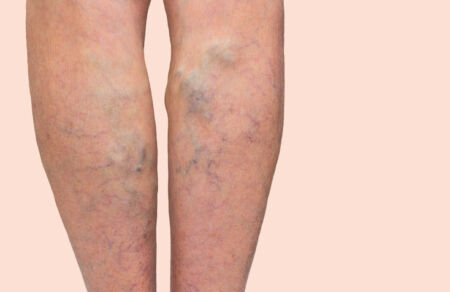
Venous disease is a relatively common problem among adults – and a problem that goes largely untreated. While this disease may never lead to symptoms or complications for some, others may experience painful side effects of the malady, some of which can even become life changing . Do you need to see a vein doctor for your legs ?
Cause of Varicose Veins
Varicose veins are caused by an underlying condition known as chronic venous insufficiency. In healthy veins, tiny valves inside keep blood moving in a uniform direction – back to the heart. Sometimes those valves can become damaged or wear out, or the veins themselves become dilated so that valves cannot close properly, leading to blood pooling and the swelling of the vessels. Chronic venous insufficiency and ‘reflux” (backward blood flow) often leads to the formation of visible spider and varicose veins, which may be the first indication anything is wrong.
Uncomfortable Symptoms
While you may see your spider and/or varicose veins as a cosmetic problem, over time they can become physically painful as well. Leg aching and heaviness and night cramping are common symptoms of chronic venous insufficiency and varicose veins. If left unchecked, changes can occur to the skin around the vessel, such as thickening and discoloration. This can lead to the formation of open sores, known as venous ulcers, around the ankle. Venous ulcers can be very difficult to treat and have a high recurrence rate, so most doctors recommend vein treatment before it progresses to this stage.
Getting an Evaluation
Evaluating varicose veins is a relatively simple procedure using duplex ultrasound. Sound waves are used to create an image of the vessel and measure blood flow inside. Ultrasound is a non-invasive test that is completely painless, involves no radiation, and involves no downtime afterward. A visual examination of varicose veins should also be performed by your physician, as well as an evaluation of any symptoms you might be experiencing.
Treatment Options
If chronic venous insufficiency is diagnosed, there are many treatment options that can eliminate diseased veins and restore healthy blood flow. Most of these procedures are minimally-invasive, involving little or no discomfort or downtime. Laser and radiofrequency technology are often used to target diseased veins and seal them closed without excessive damage to surrounding skin and tissue.
Seeking treatment for varicose veins is not always just cosmetic. By getting treatment early, you may be able to prevent uncomfortable symptoms and further complications. The first step is an evaluation of your condition by an experienced vascular specialist that can diagnose your condition and offer you effective treatment options. To learn more about varicose veins, or the treatment options available, contact Center for Vein Restoration.